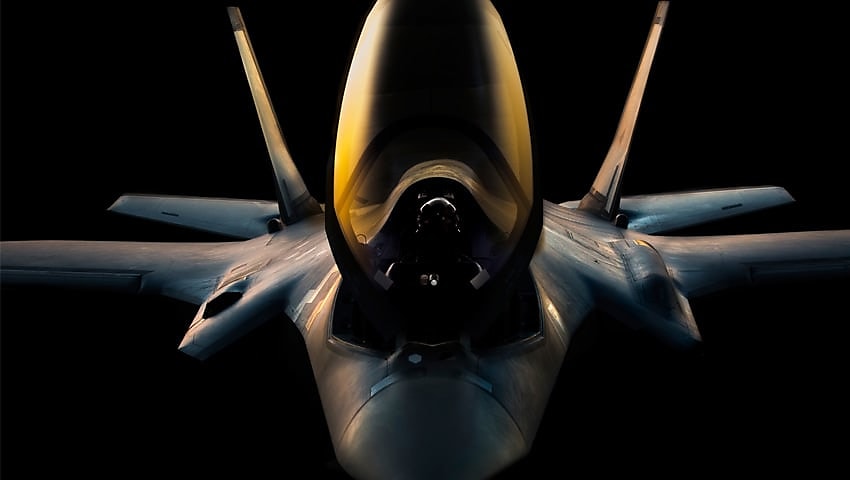The State Department has signed off on the proposed sale of Lockheed Martin-built F-35 fighter jets to Germany.
To continue reading the rest of this article, please log in.
Create free account to get unlimited news articles and more!
The Defense Security Cooperation Agency (DSCA) has announced the approval of an US$8.4 billion (AU$12 billion) foreign military sale of F-35 Joint Strike Fighter conventional take-off and landing (CTOL) aircraft and supporting equipment to Germany.
If finalised, the order would include the provision of:
- 35 F-35A stealth fighters;
- missiles and explosive ordnances — including 105 AIM-120C-8 Advanced Medium Range Air-to-Air Missiles (AMRAAM) and 75 AGM-158B/B2 Joint Air-to-Surface Standoff Missiles-Extended Range (JASSM-ER);
- 37 Pratt & Whitney F135-PW-100 engines; and
- technical and training support.
“This proposed sale will support the foreign policy and national security of the United States by improving the security of a NATO ally that is an important force for political and economic stability in Europe,” the DSCA noted.
The F-35 fleet is expected to replace the Luftwaffe’s retiring Panavia Tornado multi-role combat aircraft.
The Lockheed Martin-built fifth-generation fighter jet was initially expected to be one of two platforms to replace the Tornado fleet, with Boeing’s Eurofighter previously explored as an option.
“Germany will have no difficulty absorbing this equipment and services into its armed forces,” the DSCA added.
“The proposed sale of this equipment and support will not alter the basic military balance in the region.”
News of Germany’s intent to opt-in to the F-35 program surfaced earlier this year, coming amid mounting tensions in the region as a result of Russia’s invasion of Ukraine.
According to Madeline Wild, associate defence analyst at GlobalData, a prospective fleet of German F-35s would serve as a significant deterrent.
“The presence of another substantial F-35 fleet in central Europe — Finland and Poland currently have aircraft on order — will be reassuring for many smaller NATO states that are closer to the ongoing invasion of Ukraine," Wild said in an analysis earlier this year.
“The decision, alongside monumental budgetary growth in Germany’s ‘Bundeswehr’ military, may also placate other NATO members concerned about Germany's prior lack of enthusiasm towards military growth — historically, Germany has failed to spend anywhere near 2 per cent of its GDP on defence, as required by NATO.”
[Related: Germany boosts stealth strike capabilities with F-35 procurement]

 Login
Login







